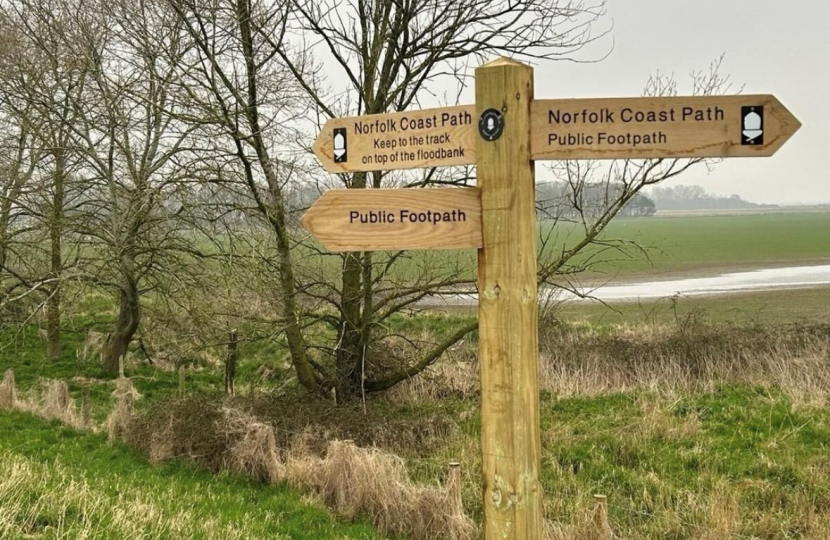
A new section of the King Charles III England Coast Path has been opened, giving the public access to some of Norfolk’s coastline for the first time.
The opening of the 33.6 miles (54.1km) section from Hunstanton in Norfolk, to Sutton Bridge in Lincolnshire, means the entire Norfolk coast is now accessible to walkers. This section introduces 7 miles of new access between Snettisham and King’s Lynn, crossing the seaward edge of Sandringham Estate.
James Marshall, Natural England Deputy Director for Norfolk & Suffolk, said:
“This new stretch of the King Charles III England Coast Path will give people from all over the country access to our beautiful local coastline, connecting them with nature and providing health and wellbeing benefits. The trail will also support the local economy - bringing walkers and visitors to the towns and villages for daytrips, refreshments and places to stay.”
The path provides multiple opportunities to spot sea birds and other nature. RSPB Snettisham, views across The Wash, and Wild Ken Hill conservation estate are all part of the route. The Wash attracts large numbers of migratory and overwintering birds such as Knot, Dunlin and Oystercatcher. So to protect wildlife the path has been carefully routed to avoid disturbance.
The trail passes by the towns of Hunstanton, Heacham and King’s Lynn. King’s Lynn offers much historical and maritime heritage to explore along its elegant quayside by the Great Ouse. From King’s Lynn the trail follows the Peter Scott Walk, named after the popular conservationist who lived in the area.
Parts of the path are quite remote, with no public facilities or connecting paths for several miles. However, there are services and transport links in the centres of King’s Lynn and Sutton Bridge.
Natural England worked on this section of the King Charles III England Coast Path with its partners. This incuded Norfolk County Council, Lincolnshire County Council and RSPB.
The King Charles III England Coast Path, once completed, will be a 2,700 mile National Trail around the whole of the English coast. It will enable people to enjoy, recognise and value the benefits of our environment. Over 95% of the English coast is expected to be walkable by the end of 2024, with work to finish the job following closely behind.
The new access will link up and improve existing coastal paths and create new access where there was none before. People can arrive at the coast anywhere in England in the knowledge that there will be well-signed and well-managed access around the coast in either direction. The trail aims to stay as close to the coast as possible and in many places that means walking right alongside the coast. While in others it heads inland, though usually only for short distances.
Once complete the King Charles III England Coast Path will be England’s longest National Trail. It is unique as a ‘coastal margin’ is being created alongside the trail. The margin includes all land between the trail and the sea, providing new rights to enjoy areas like beaches and dunes. Exceptions will apply such as private properties or conservation areas.
Visitors can use the National Trails website to plan their day and see places to visit, stay or eat. See King Charles III England Coast Path - National Trails for maps and information of all opened sections.

